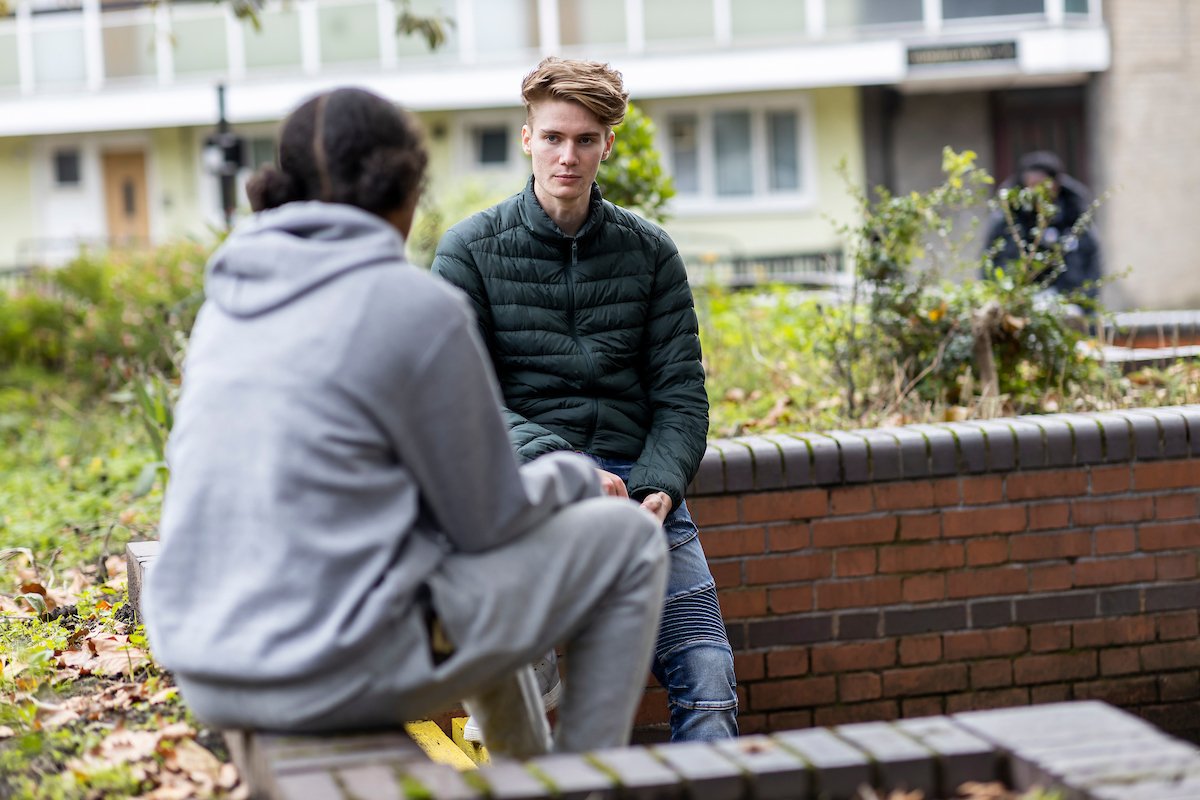How to stay away from drugs and alcohol
Once you’ve done something as hard as quitting drugs, you kinda just want that conversation to be done. It can seem like a never-ending battle when you then have to work to stay clean. Good news is, you’ve got a whole army to fight this thing-that-must-not-be-named with. So, let’s find out more about our enemy together.

How can I stay off drugs?
If you’ve decided to kick your drugs habit to the curb, you can look into getting treatment or going to a support group to help you deal with your addiction. Sadly, being drug-free is only the start. Getting clean doesn’t end after withdrawal symptoms – learning how to stay away from drugs and alcohol can be really tough.
As Andy McNichol, from former drugs information charity DrugScope (now DrugWise), says: “Staying off drugs can be really difficult, particularly for substances where you can develop a physical addiction, like alcohol, heroin and benzodiazepines.”
Know who your friends are
“You have to change when you come off,” says Colin Stewart, drugs advisor for Release. “You need to lose friends you use with, get rid of dealers or mates who can get drugs, and delete their telephone numbers.”
A key thing is to let people support you through the process of staying sober. Whether it’s a drugs worker, doctor, or family member, having people you can talk to and can understand the situation will be huge for your long-term addiction recovery.
“Those close to you can help make things easier, often just by listening,” says Andy. “You should try to stay away from social situations where you might be tempted to take drugs by planning other ways to spend your time. Your mates who don’t use drugs can help with this.”
It’s a suggestion echoed by Colin, who reckons it is best to go out with family and mates who don’t use and go to lowkey places, like a nice restaurant (sans drinking alcohol). “try to limit alcohol intake as this lowers your resistance and can trigger old patterns,” he says, “and avoid places you used drugs in and areas you scored.”
Stay active and positive
Relapsing, can often be triggered when you feel depressed, lonely or bored. So, an important element of staying off drugs is trying to stay positive and occupying your time. Something as small as a 10-minute Chloe Ting workout can improve your mental health massively. Taking up a new hobby, getting creative or volunteering can help you keep busy. There are some great tips here for how to have fun without drugs and alcohol.
Shit, I’ve had a relapse
If you do have a relapse it’s important to remember that everything will be okay. Support and treatment for relapse prevention is still available. The best move is to get back in touch with your local agencies or doctor (GP) as soon as possible.
“Drug services and doctors are under no illusions regarding how difficult it is to stay off drugs,” says Andy. “They will look to provide you with the help you need to overcome your drugs problem regardless of how many times you have been to see them. Each time they will look at your situation, discuss your experiences of any treatment you’ve been through and look at the best way forward.”
The risk of relapsing depends on the level of your substance use: what you’ve done, how long for, and what help you receive. With heroin and coke, for example, even a small relapse can trigger a full-on addiction relapse.
That’s why it’s important to deal with the root of your addiction. “Drugs are often the symptom of a deeper problem,” says Colin. Giving up for good can mean sorting out a whole range of things in your life; but, again, you don’t have to face these challenges alone. Speak to your GP or local agencies about how to stay away from drugs and alcohol.
Next Steps
- Addaction helps people recover from drug and alcohol addictions.
- Chat about this subject on our Discussion Boards.
By Nishika Melwani
Updated on 05-Aug-2021
No featured article














